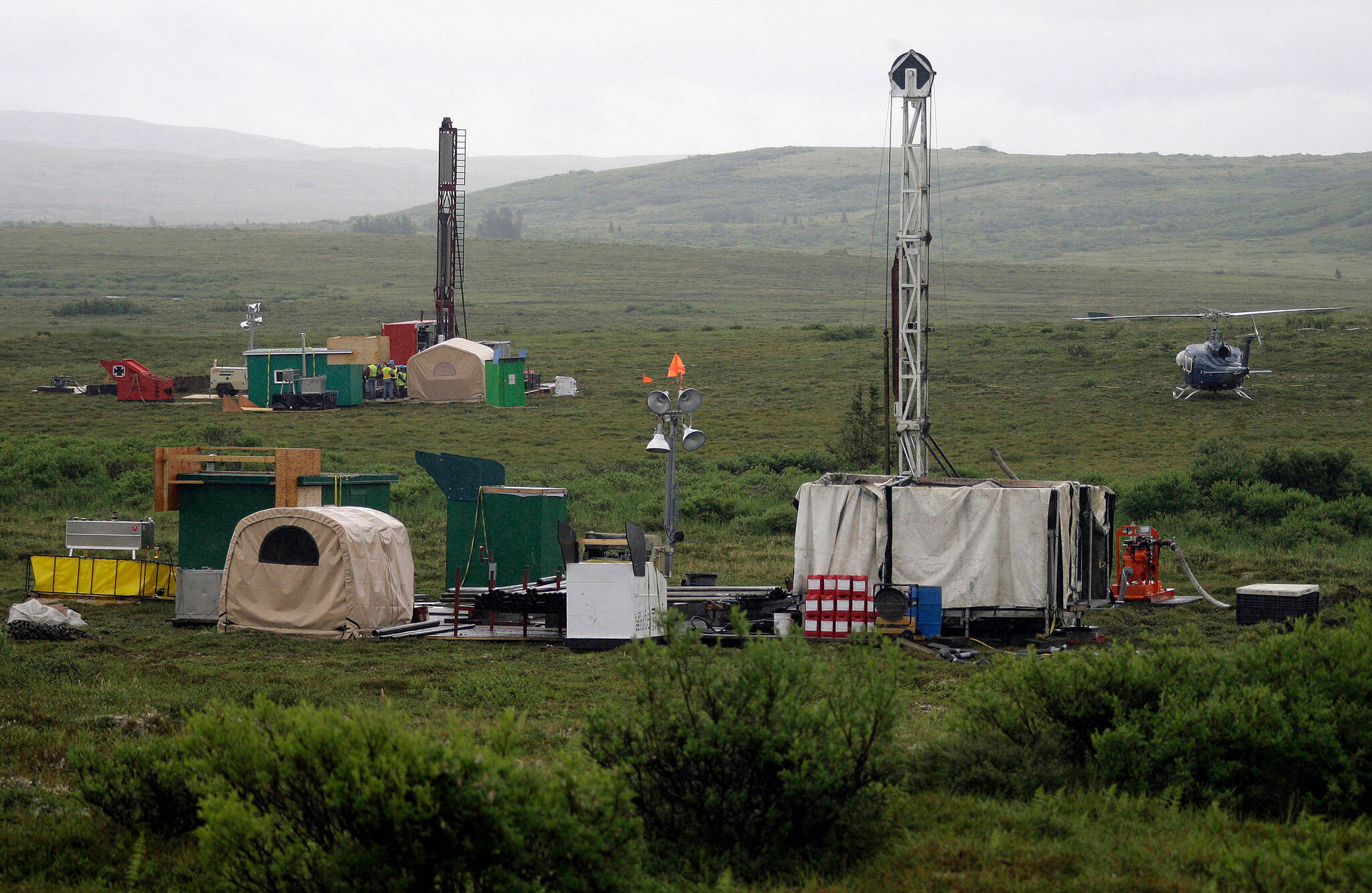By Becky Bohrer
Associated Press
The U.S. Environmental Protection Agency on Wednesday proposed restrictions that would block plans for a copper and gold mine in Alaska’s Bristol Bay region, the latest in a long-running dispute over efforts by developers to advance the mine in a region known for its salmon runs.
Critics of the Pebble Mine project called the move an important step in a years-long fight to stop the mine. But John Shively, the CEO of the Pebble Limited Partnership, which is pursuing the mine, called EPA’s proposal a “political maneuver” and a preemptive effort to veto the project.
The EPA in a statement said the proposal would bar discharges of dredged or fill material into the waters of the U.S. within the mine site footprint proposed by the Pebble partnership.
The federal agency said it took into account information that has become available since it previously proposed restricting development in 2014, including new scientific analyses and a mine plan from the Pebble partnership that was submitted to the U.S. Army Corps of Engineers as part of a permit application.
The Pebble partnership, owned by Canada-based Northern Dynasty Minerals Ltd., is appealing a 2020 corps decision that denied approval of a key permit for the project in southwest Alaska. Leaders of the Pebble partnership had seen as favorable to the project an environmental review from the corps that was released several months before the rejection decision.
The corps’ Pacific Ocean Division is handling the appeal. A division spokesperson, Luciano Vera, earlier this month said the corps did not have a timeline for releasing a decision but was “committed to working as efficiently as possible to reach an objective and fair decision on the merits of this appeal.”
Casey Sixkiller, the EPA’s administrator for the region, said Bristol Bay supports one of the world’s most important salmon fisheries. The EPA has said the Bristol Bay region supports the largest sockeye salmon fishery in the world and that is also contains significant mineral resources.
“Clearly, Bristol Bay and the thousands of people who rely on it deserve the highest level of protection,” Sixkiller said in a statement.
The fight over the project has spanned several presidential administrations.
The EPA during the Obama administration proposed restrictions on large-scale mining in the region but they were never finalized. The Pebble partnership called those proposed restrictions unfair, saying they were based on hypothetical mine plans and that the project should have a chance to go through the permitting process.
There was litigation, and the parties in 2017 during the Trump administration reached a settlement in which the EPA agreed to initiate a process to suggest withdrawing the proposed restrictions. The agreement gave the Pebble partnership time to file a permit application with the corps, which it did.
In 2019, the EPA withdrew the proposed restrictions, removing what it called an “outdated, preemptive proposed veto of the Pebble Mine.” That move was challenged in court. The EPA last year asked a judge to vacate the withdrawal decision and send the matter back to the agency for further consideration. The request was granted.
The EPA said it will accept public comments on its latest proposal through July 5 and plans to hold public hearings.
Shively, the Pebble partnership CEO, said the Pebble project “remains an important domestic source for the minerals necessary for the Biden Administration to reach its green energy goals and if it blocks Pebble it will have to seek minerals to meet its goals from foreign sources, which simply do not have the same environmental standards as we do.”
Critics of the proposed Pebble Mine have been pressing the EPA to provide protections for the Bristol Bay region. President Joe Biden as a candidate in 2020 said if elected he would “protect Bristol Bay.”
“As stewards of these lands and waters since time immemorial, our people welcome this step towards permanent protections for our waters and way of life,” said Alannah Hurley, executive director for the United Tribes of Bristol Bay, a tribal consortium that has fought the Pebble project. “Today’s announcement by the EPA is a good start in this effort.”
U.S. Sen. Maria Cantwell, a Washington state Democrat, in a statement commended the EPA “for advancing permanent Clean Water Act protections for Bristol Bay.” She said she urged the agency to “move swiftly” to finalize the actions.

